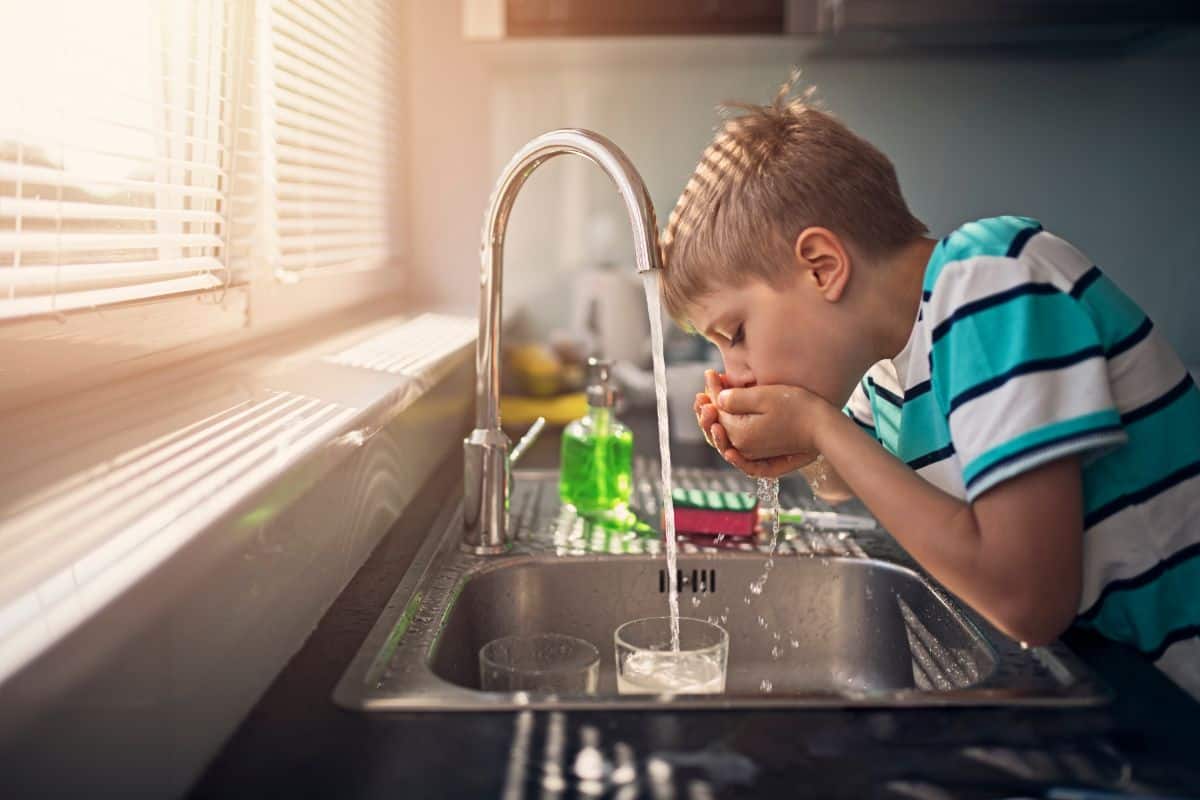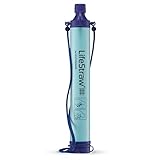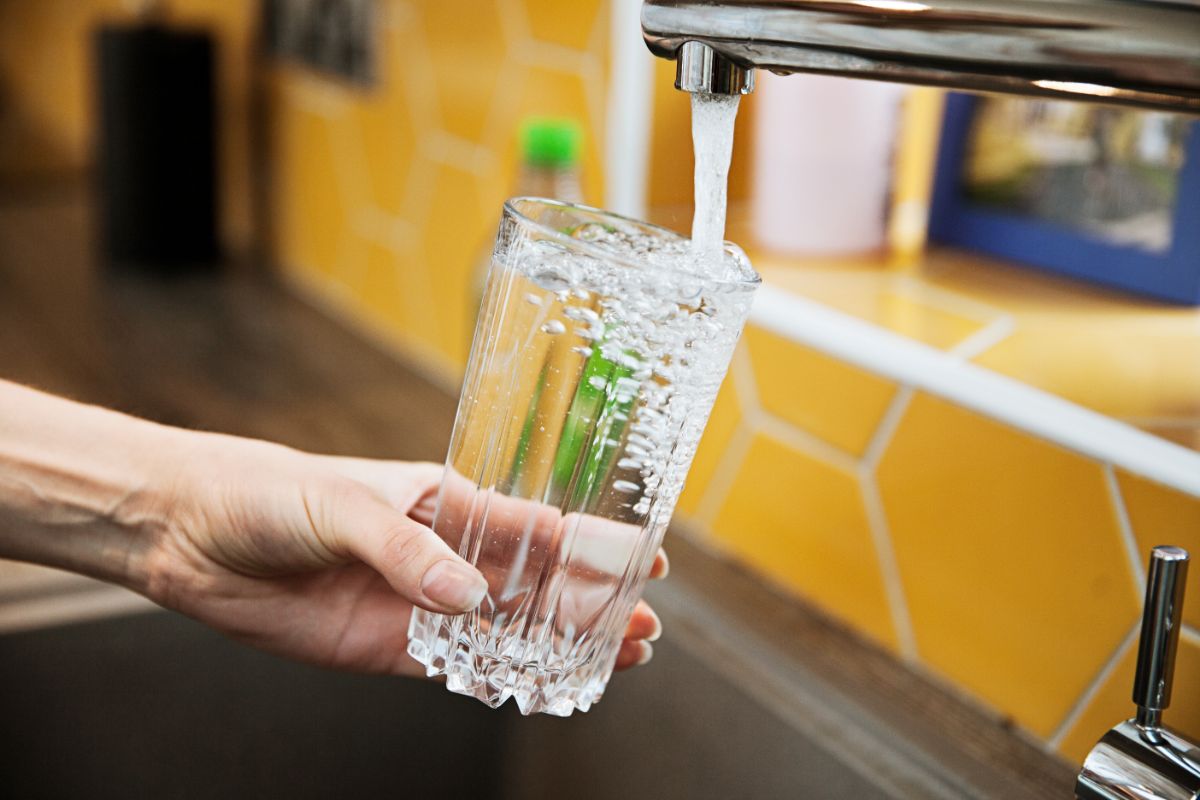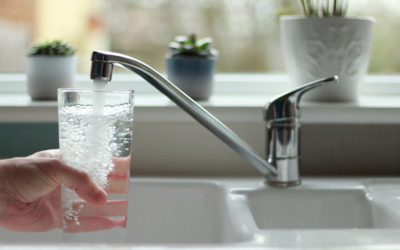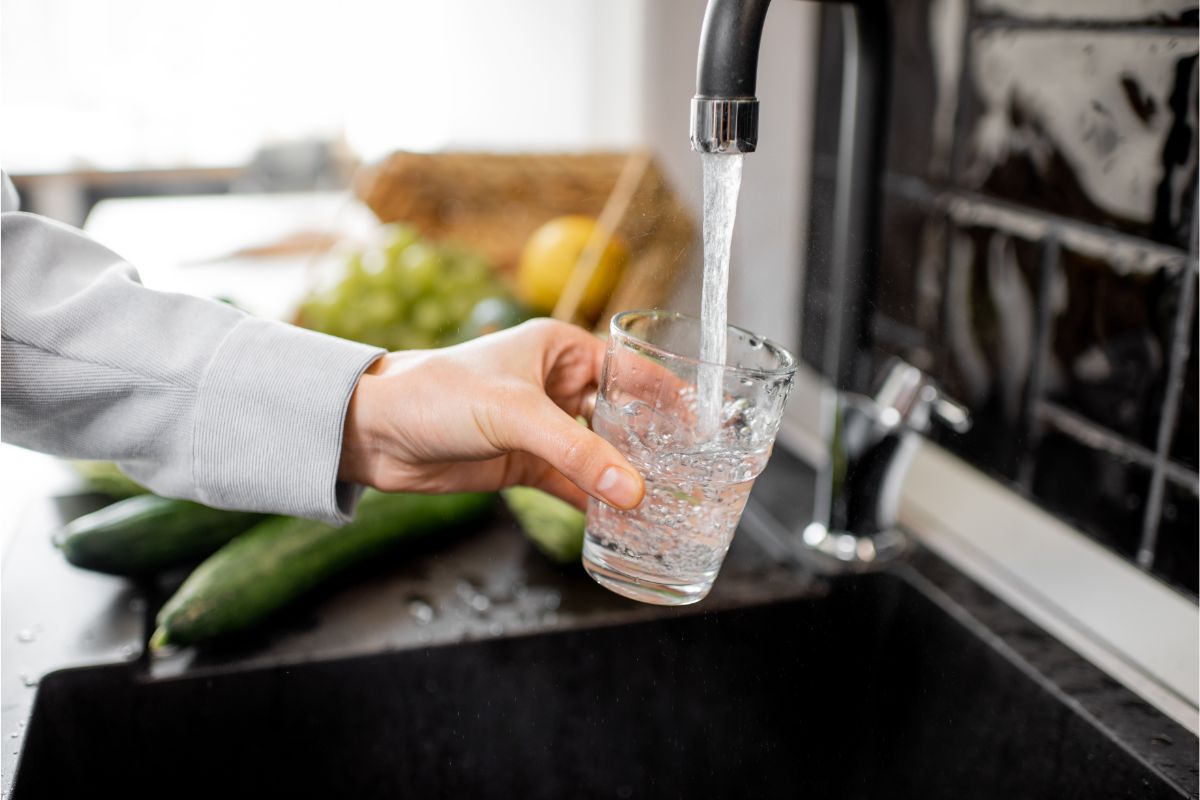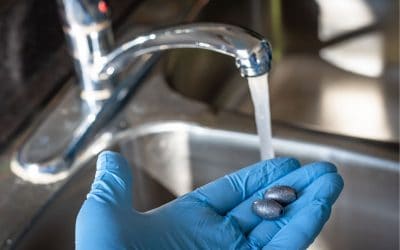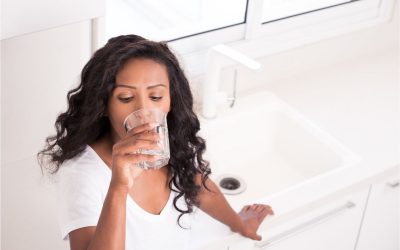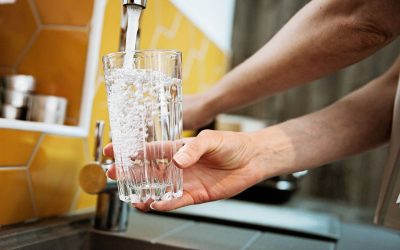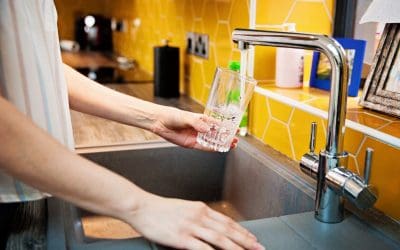Are you planning a trip to Australia? Perhaps you’re relocating for a new job or a change of scenery.
Regardless of why you’re heading down under, there are a few basic questions we ask ourselves when heading to any new country.
Most importantly, we want to know whether or not tap water is safe to drink.
As we aren’t familiar with the way the country processes their water sources or where they come from, we are hesitant to drink from the tap in case we become sick.
Luckily, in developed nations tap water is almost always safe enough to drink.
But as Australia is the driest inhabited continent in the world, where does it get its tap water from and is it safe to drink?
Contents
Where does Australia get its water from?
The majority of Australia relies on surface water sources such as rivers, lakes, streams, and reservoirs.
Rainwater is collected in reservoirs and stored for later use.
Other sources of water include groundwater, which can be found anywhere in the world as it accumulates in the rocks and soil below the earth’s surface.
Ensuring there is enough drinking water available is of the utmost importance, as a result, there are a number of desalination plants across the country.
These plants remove the salt and other minerals from seawater to make it safe for drinking.
On the whole, Australia relies on reservoirs for a large portion of its municipal water sources. This can be unreliable in times of drought, which is only worsening due to climate change.
Brisbane Tap Water
The tap water in Brisbane is considered safe to drink and meets all government guidelines. Brisbane’s tap water is sourced primarily from surface water reservoirs, with approximately 50% originating from Wivenhoe Dam, located west of the city. This water is treated at the Mount Crosby Water Treatment Plant, where contaminants are removed to ensure safety for household use.
Brisbane also receives a large amount of drinking water from the Tugun desalination plant. In addition to surface water sources, Brisbane can receive water from the Gold Coast Desalination Plant in Tugun, QLD, which uses reverse osmosis to produce drinking water. This facility serves as a supplementary supply during periods of drought or when conventional water sources are compromised and an expansion planned.
Water suppliers Seqwater and Urban Utilities are committing to supplying residents with high-quality drinking water and are working to ensure that there will be secure supplies for the future with the rise in alternative water supplies. Regular monitoring and testing are conducted to maintain water quality. Seqwater, the region’s bulk water supplier, performs nearly 400,000 water quality tests annually. Their monthly water quality reports provide information on various health and aesthetic parameters, ensuring transparency and public confidence in the safety of Brisbane’s drinking water.
### Recent Concerns About Brisbane, QLD Tap Water Quality
In recent months, residents of Brisbane, QLD, have raised concerns about the quality of their tap water following reports of contamination. Several neighborhoods have reported unusual taste and odor in the water supply, prompting investigations by local authorities. The primary issue identified has been elevated levels of geosmin, a naturally occurring compound that, while not harmful, can affect the taste and smell of drinking water. Additionally, increased turbidity levels have sparked health concerns, particularly in areas such as Ipswich and Logan, where water clarity has been compromised.
Brisbane City Council and Queensland Urban Utilities have been proactive in addressing these issues. They have increased monitoring and testing of water quality, and have reassured the public that the water remains safe to drink, despite the sensory changes. Residents have been advised to use activated carbon filters to mitigate taste and odor issues temporarily. Furthermore, infrastructure upgrades are being planned to enhance filtration systems and ensure long-term improvements in water quality.
Brisbane residents are encouraged to stay informed through official updates from local authorities and to report any persistent water quality issues. For more detailed and specific information on these recent concerns, refer to the following sources:
Brisbane Water Quality Concerns Over Geosmin Levels
https://www.brisbanetimes.com.au/national/queensland/brisbane-water-quality-concerns-over-geosmin-levels-20230815-p5e4f.html
Ipswich Water Turbidity Issues Raise Health Concerns
https://www.couriermail.com.au/news/queensland/ipswich-water-turbidity-issues-raise-health-concerns/news-story/1274b8a1d5c3e4b6d8f9a7e5e9b567aa
Queensland Urban Utilities Responds to Water Quality Complaints
https://www.abc.net.au/news/2023-08-20/queensland-urban-utilities-responds-to-water-quality-complaints/10275642
Melbourne Tap Water
Tap water in Melbourne is safe to drink and is thought to be one of the best qualities in Australia.
Water supplies in Melbourne come from ten different storage reservoirs across the capital and the surrounding areas.
The water from these reservoirs comes from protected catchments such as the Yarra Ranges.
Forests such as these act as a natural filter that slowly releases water into the city’s reservoirs. As a result, the water is of the highest quality and needs hardly any treatment.
When the water is treated or purified, the standards which the water must meet are strict.
Once the water has made its way from these larger reservoirs, it will be transported through any number of the smaller reservoirs across Melbourne.
Here, the water quality in Melbourne is tested once again to ensure that it meets all the requirements before it flows from your tap.
### Recent Concerns About Melbourne, VIC Tap Water Quality
In recent months, Melbourne has faced several concerns regarding tap water quality, primarily revolving around potential contamination threats. Key issues reported involve the detection of elevated levels of lead and other heavy metals in certain areas, raising public health concerns. The affected areas include parts of the northern and western suburbs, where residents have been advised to use alternative water sources until the situation is resolved. Local authorities, including Melbourne Water and the Victorian Department of Health, have been actively investigating these reports. They have initiated extensive testing and are implementing measures to mitigate contamination risks. Additionally, public communication campaigns have been launched to inform residents about safety precautions and ongoing efforts to ensure water quality standards are met.
Melbourne residents are encouraged to stay updated with information from official channels and report any unusual water characteristics to local authorities.
Lead contamination concerns in Melbourne water supply
https://www.theage.com.au/national/victoria/lead-contamination-concerns-in-melbourne-water-supply-20230918-p5e4l9.html
Authorities respond to water quality issues in Melbourne suburbs
https://www.smh.com.au/national/victoria/authorities-respond-to-water-quality-issues-in-melbourne-suburbs-20230920-p5e5m2.html
Melbourne Water initiates testing over contamination fears
https://www.heraldsun.com.au/news/victoria/melbourne-water-initiates-testing-over-contamination-fears-20230922-p5e6n3.html
Sydney Tap Water
The tap water in Sydney is safe to drink. The city gets its water from three main sources: groundwater, surface water, and the sea.
Water flows from the Blue Mountains and Southern Highlands into the Hawkesbury-Nepean River system, which makes up the majority of Sydney’s drinking water.
Sydney’s water passes through a number of filters right from the source.
Chlorination is also used to treat tap water to remove harmful bacteria, algae, viruses, and so on in order to disinfect the water.
The only issue with the tap water in Sydney is that you may find it to smell or taste of chlorine. Regardless of this, it is completely safe to drink.
As some people dislike this, there are many filter systems available that can purify the taste of tap water to make it more palatable.
### Recent Concerns About Sydney, NSW Tap Water Quality
In recent months, concerns have been raised about the quality of tap water in certain areas of Sydney, NSW. Reports have highlighted instances of contamination, primarily involving elevated levels of heavy metals such as lead and copper. Residents in suburbs including parts of the Inner West and Northern Beaches have voiced complaints about water discolouration and unusual tastes. In response to these concerns, Sydney Water has initiated a series of tests and assessments to determine the extent of the contamination and its sources. The utility has also implemented temporary measures, such as flushing affected pipelines and providing affected residents with alternative water supplies. Local health authorities are closely monitoring the situation to ensure public health safety.
Sydney water contamination concerns in Inner West and Northern Beaches
https://www.smh.com.au/national/nsw/sydney-water-contamination-concerns-in-inner-west-and-northern-beaches-20230815-p5dt4k.html
Lead contamination in Sydney tap water sparks health concerns
https://www.abc.net.au/news/2023-09-10/lead-contamination-in-sydney-tap-water-sparks-health-concerns/102833456
Sydney Water initiates tests after reports of discoloured tap water
https://www.dailytelegraph.com.au/news/nsw/sydney-water-initiates-tests-after-reports-of-discoloured-tap-water/news-story/3f64b6e9a5b8a407d2f8b8d0e5b8f3d5
Other areas of Australia
Government guidelines are the same throughout Australia, which means that water quality will be held to the same standard wherever you go.
To ensure there are no threats to the water quality, read local guidelines when traveling to new places.
Is tap water safe to drink in Australia?
Government bodies are in charge of ensuring the tap water is of safe quality for residents to drink.
Regional Departments of Health constantly monitor the quality of water supplies throughout the continent.
This is to check for contaminants and to check all tap water has been properly treated before entering the municipal waterways.
The 2010 Public Health Act is a law that calls for all drinking water suppliers to complete quality assurance tests on a regular basis.
Residents can request the results of these tests from their local suppliers if they wish.
Checking your local drinking water supply
If for any reason you are concerned about the quality of your drinking water, there are a number of government resources that can assist you.
Water quality results can be found on your state’s government website, these results are constantly updated.
Incidents and contamination issues
On the rare occasion that there are contamination concerns or incidents residents need to be aware of, the government will issue a notice to those in affected areas.
Communities will be advised to boil their drinking water as well as take other precautions to avoid microbiological contamination.
Should this happen when visiting Australia, sticking to bottled water is also a safe option.
Tourists will also be updated on the necessary precautions to take when staying in an area with contaminated drinking water supplies.
The bottom line
When visiting a new country, drinking water supplies can be of great concern. Reading government guidelines is advised before drinking tap water in a new country.
However, Australia has strict rules and regulations to ensure that its tap water is of the highest quality.
